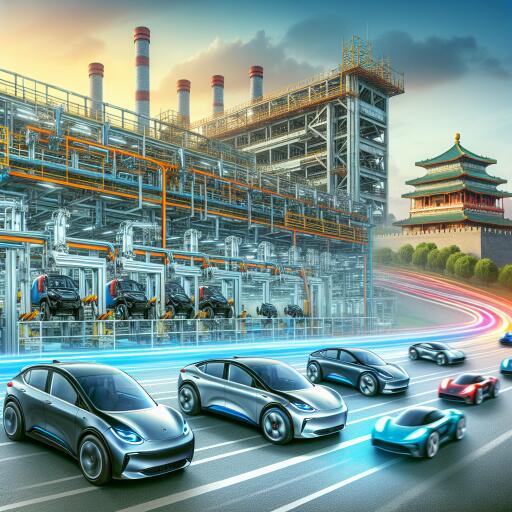Tesla Lowers EV Output in China as Sales Slow and Competition Spikes
In a significant development from the electric vehicle (EV) sector, Tesla, headquartered in Austin, Texas, has initiated a strategic adjustment at its Shanghai Gigafactory in response to slowing sales and intensifying competition. The company has reduced the production pace of its Model Y and Model 3 electric vehicles (EVs) by reducing work schedules from six and a half days to five days per week. The production lines at Gigafactory Shanghai will maintain their two-shift system, each lasting 11.5 hours, but the overall output has been notably reduced starting earlier this month.
Furthermore, certain production lines at the Shanghai facility, notably including the battery workshops, are experiencing extended halts. Suppliers have been informed to anticipate these prolonged production limitations continuing through April, highlighting the extent of the adjustment.
This operational pivot has had a significant impact on Tesla’s market performance. The company’s shares dipped over 3% in premarket trading following the announcement. This downturn in fortunes has seen Tesla become the worst-performing stock in the S&P 500 for the current year, resulting in its exit from the list of the top 10 U.S. companies by market capitalization. The company now ranks behind financial giants such as Visa and JPMorgan Chase.
The EV market, on a global scale, has shown signs of slowing demand, pushing automakers to reconsider investment levels and engage in price reductions. Although the sector continues to grow, the pace is not aligned with the rapid expansion witnessed in preceding years. Tesla’s delivery performance in China underscores this trend, with 60,365 units shipped last month, marking a 19% decrease from the year prior, as reported by the Chinese Passenger Car Association. This represents the company’s lowest monthly figure since December 2022, and a sharp decline from its earlier sales achievements.
In an effort to counteract these challenges, Tesla has been aggressive with local incentives, despite plans to increase prices on its China-made Model Y SUVs in April. The company has also hinted at price hikes in the U.S. and China next month. However, competition is becoming fiercer, with new players entering the market and existing ones launching competitively priced models.
One such competitor, BYD, has updated its e2 EV hatchback to be priced at an impressively low 89,800 yuan ($12,485), a 12.6% reduction from its previous price. The Shenzhen-based automaker is not stopping there; it has also unveiled its $233,000 Yangwang U9 “supercar.” Meanwhile, Xiaomi, traditionally known for its smartphones, has entered the EV fray, claiming its first EV will outpace the offerings from Tesla and Porsche. Xiaomi’s expectations to unveil the price in the upcoming week have added to the speculation and anticipation around its entry into the market.
The adjustments at Tesla’s Shanghai Gigafactory and the evolving competitive landscape in China’s EV market depict a challenging period for the EV giant. With new and existing players keen on claiming their share of the market, it remains to be seen how these strategic shifts and the increasing competition will influence Tesla’s position in the long term.
